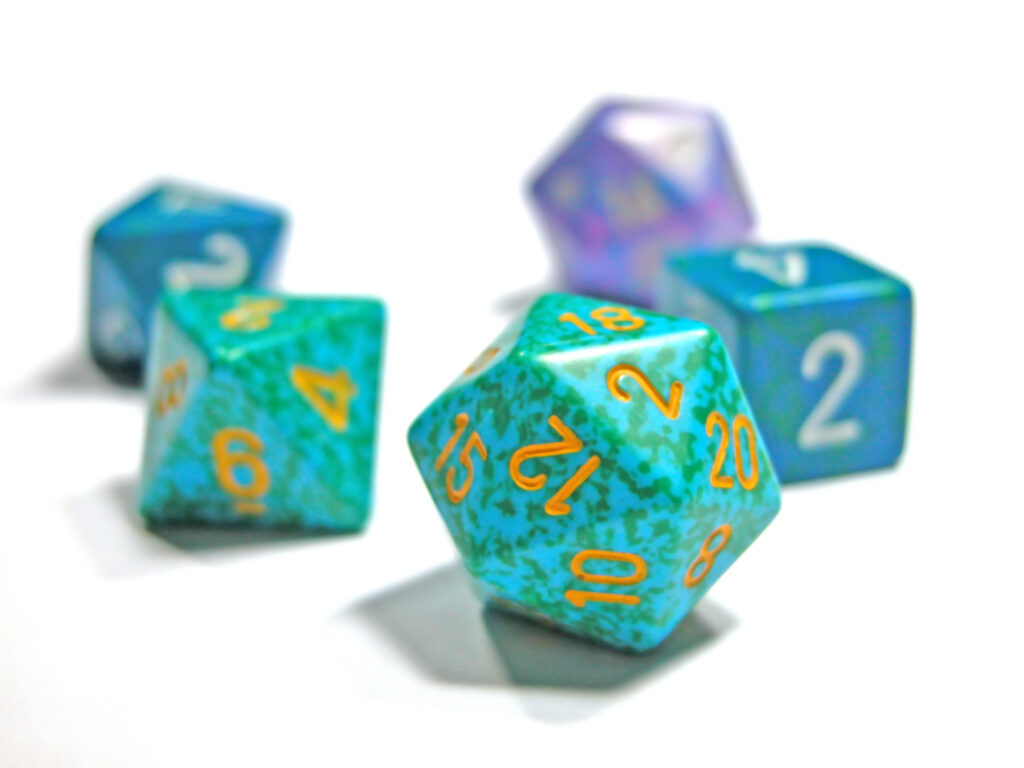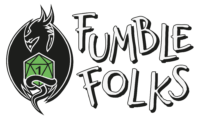Let’s Start at… The Start!
For this exercise, we will be using the world’s most popular TTRPG – Dungeons and Dragons 5th Edition, as the basis for our game. Using the Dungeon Masters Guide, there are a few items we need to get our minds around first:
- Our players will be taking on roles called CLASSES, these are what makes your players unique and different from each other.
- When your players are making these characters, they will be creating their STATS, this determines how good or bad they are at doing things. There are a long list of abilities, but they are separated into Physical and Mental. We will go into these in greater detail later.
Once your players have set up their characters, whether that be in person with you or using online tools, the next step is giving them a game. There are a few ways that you can go about doing this.
- Use an Official Adventure. My current recommendation for new GMs and Players alike is Candlekeep Mysteries built by those with experience, using an official adventure saves a new GM time and stress, allowing your first foray into running a game to go a lot smoother. Buy the book on Amazon* here: amzn.to/3HTQ0CO
- Use an adventure created by the RPG community through sites like DriveThruRPG*. While these may vary in quality, there are free options here for those who don’t want to make the financial investment before knowing if they love the hobby.
- Create your own! Part of the joy of being the GM is creating a world for your friends to interact with, it can be as normal or barmy as you like! Want a world where if you jump in the ocean it’s actually made of Jello? Then do it, it’s your world! (I hope it is lime flavoured… I shouldn’t be writing this hungry).
*These are affiliate links, meaning, at no additional cost to you, we will earn a commission if you click through and make a purchase. As an Amazon Associate we earn from qualifying purchases.

Important things to remember
1. Rule 0, aka “The DM is always right.” – You might hear this “rule” in many places, and at first glance it might seem heavy-handed and destructive. Just remember, your job as the GM is not to be an opponent for your players. Your job is to be part of telling a cooperative story, and take care of all the NPCs, monsters, traps, and plot points the players will encounter. In this case, what Rule 0 means is that you don’t need to worry about the rules, or the text of an adventure, word for word. If, during a session, something comes up in-game and you’re not sure what rule applies, or how a rule might apply, you can either stop the game and look up the rule (and debate it with the players), or you can make a ruling on the spot for the sake of keeping the game flowing.
I vote for the second option. Make it clear to the players that you are making a ruling now, and will check later, just to keep the game going! After the session, you can look up the official rule. If you got it wrong, no big deal. Next session you can tell the players what you learned and let them know that going forward, if the same situation comes up, you will all follow the rules as written – or if what you decided is better (House Rules).
The same can be said for adventures. If you’re playing through a published adventure and make a mistake, no big deal! You can retcon it later, or just change the story to fit the mistake. The Adventure as written is not the law! You can make it your own.

2. You don’t have to memorize all the rules! – This may seem like more of Rule 0, but it is important to understand that you DON’T have to memorize all the rules in the Player Handbook and Dungeon Master’s Guide before you start DMing. As long as you and your players are all familiar with the basic rules for playing the game, you’ll do fine.
As the game progresses you will learn more, and more, and even more!
Each game session is a chance to practice and hone those skills. Before you know it, you’ll be correcting other people online like a pro! In fact, much of the 5e DMG is about world-building, which you won’t need if you’re starting with a published adventure (though you should – look at Candlekeep Mysteries.). The most important things to skim over before you play are probably the parts about encounters and the environment, traps and treasure. Don’t bother reading through the entire magic items section, just look through it for the things that look cool to you.

3. Table Rules – One of the most challenging parts of running a D&D game (or any RPG for that matter) is bringing together a group of people and keeping everyone happy. This can be especially difficult if you are running a game for strangers (online or at a store); with younger players new to the game; or even with your regular group of friends. Remember that Dungeons & Dragons is a game, and you are all there to have FUN. If you aren’t having fun, then something is wrong.
As a starting point for making sure everyone has fun, put together a list of your table rules and hand it out in advance. Consider having a Session Zero. This is where you can all get together and discuss these rules and any issues you or your players might have before the games starts. Let your players ask questions about the table rules and how you plan to run the game, and make sure you respect their questions – don’t make them feel “dumb” for asking something you think should be obvious. Dungeons & Dragons is an inclusive game.
Everyone at the table should feel welcome and safe. These are just a few examples of table rules, feel free to add more, but remember, the goal is for everyone to have fun.
Some good table rules include:
- No racist, homophobic, sexist, trans-phobic, or otherwise prejudiced remarks, jokes or threats. Period. No one should be made to feel unwelcome or uncomfortable. It doesn’t matter if ‘It’s what their character would do.’ No is No when it comes to this topic.
- No party in-fighting. Unless everyone is okay with PVP (player vs player), just rule it out from the start. No stealing from each other, and no fighting each other, unless it’s agreed upon by all. Even if a couple of players agree to it, it can make other players feel uncomfortable;
- No bullying. In-character or out-of-character. If any player has a problem with another player out-of-game, don’t bring it to the table. If those players can’t figure out their differences outside of the game, then they shouldn’t be in the game together unless they are able to leave their baggage at the door;
- No rules-lawyers at the table. A rules-lawyer is someone who knows (or thinks they know) all the rules, and is constantly correcting the DM and everyone else. Don’t be a rules lawyer. If the DM needs help with a rule, they can always ask the rules lawyer for help, but until then, keep your rules-lawyering to yourself.
This should give you the basic foundation from which to get started with embarking on your first GM experience. In the next blog, I’ll talk about running the game itself, with further blogs going into more depth about social and combat encounters.
How to Support Fumble Folks
Hi and thank you for reading 15+ Great Gift Ideas for Geeks and Nerds! If you like what we do and wish to support Fumble Folks, here are a few ways you can do that:
- Follow us on our social media platforms. Find the links here: linktr.ee/fumblefolks
- Join our Discord Server and help our community grow!
- Join our Patreon and pledge the low price of a coffee every month. This will enable us to grow and do bigger and better things with Fumble Folks. Check out the Tiers we offer on Patreon or check out our other blog post here (coming soon).
- Listen to the Rapid Riders on Spotify or come and watch us live and give us that all-important Subscription on Twitch. Amazon Prime users get 1 free Prime Sub a month to use on your favourite Twitch creator, so use it wisely!
- Click on our Affiliate Links! We have been very lucky to be affiliate with a few companies including EMP, Hero Forge, iwantoneofthose.com among others. Clicking these links helps us as we get a small commission if you purchase anything, but won’t change anything for you. Win/win!
Above all, thank you for reading and stopping by! Any support is so much appreciated. Here’s to the future of Fumble Folks!
Recent Posts
- Denizens and Oddities Kickstarter Live
- Denizens, Oddities, and an overdue update!
- 2024 CRIT Award Winners!
- We are at Dragonmeet 2023: what you need to know!
- Mastering D&D 5e Character Creation: The Ultimate Guide to Crafting a Perfectly Balanced Character for Total Success
Archive
- November 2024
- October 2024
- November 2023
- October 2023
- July 2023
- May 2023
- January 2023
- December 2022
- October 2022
- August 2022
- June 2022
- April 2022
- January 2022
- December 2021
- November 2021
- October 2021
| M | T | W | T | F | S | S |
|---|---|---|---|---|---|---|
| 1 | 2 | 3 | 4 | 5 | ||
| 6 | 7 | 8 | 9 | 10 | 11 | 12 |
| 13 | 14 | 15 | 16 | 17 | 18 | 19 |
| 20 | 21 | 22 | 23 | 24 | 25 | 26 |
| 27 | 28 | 29 | 30 | 31 | ||
